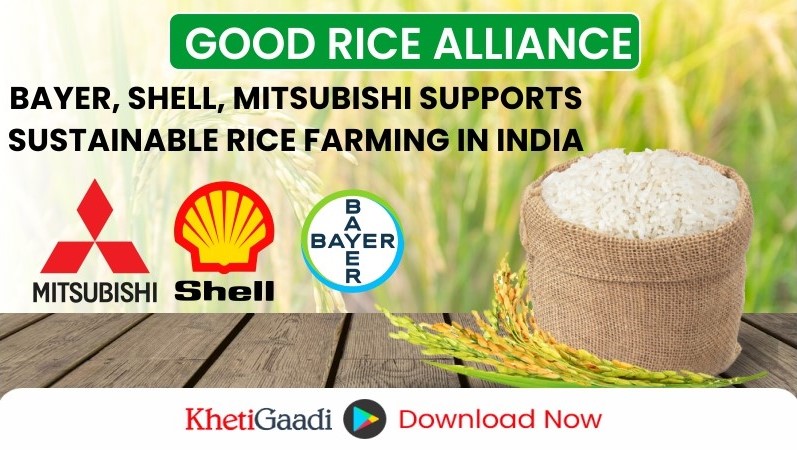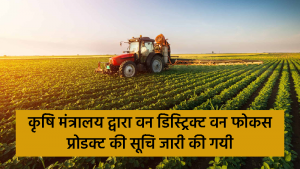The Good Rice Alliance (TGRA), formerly known as the Sustainable Rice Carbon Programme, is working to help rice farmers in India adopt sustainable farming practices. So far, the program has enrolled over 10,000 farmers, covering more than 25,000 hectares of farmland. Through these efforts, TGRA aims to reduce over 100,000 tonnes of methane emissions each year, which is a major greenhouse gas (GHG) produced by rice farming.
KhetiGaadi always provides right tractor information
Expanding the Program and Supporting Farmers
TGRA is now planning to expand its reach by adding around 8,500 more hectares of rice fields. They will also improve the scientific methods for measuring GHG emissions from rice paddies and strengthen the support system for farmers. The program will build on its experiences from the first two years of implementation, with a focus on expanding into major rice-producing states like Andhra Pradesh, Bihar, Haryana, Karnataka, Odisha, Tamil Nadu, Telangana, Uttar Pradesh, and West Bengal.
A Collaborative Effort
TGRA is supported by Bayer, GenZero, Shell Energy India Private Limited, and Mitsubishi Corporation. These companies are working together to help reduce GHG emissions by promoting sustainable farming methods. Bayer is a global company involved in agriculture and healthcare, GenZero is an investment platform focused on decarbonization, Shell is a subsidiary of Shell Plc involved in nature-based solutions, and Mitsubishi is a business enterprise with a presence in various sectors. Together, they aim to reduce emissions and improve the lives of rice farmers.
Benefits for Farmers and the Environment
Through the program, many farmers have already seen a reduction in their farming costs. A scientific study was also conducted in six different locations in India to measure GHG emissions. As a result, TGRA has made significant progress in improving both the environment and the livelihood of farmers.
The carbon offset market in India is growing rapidly, with demand for carbon credits expected to rise to between 330 million and 1.5 billion tonnes by 2030. The industry is projected to grow by 28% annually, potentially reaching a market value of $68.5 million by 2033.
Quality and Integrity of the Program
TGRA uses a Total Quality Management (TQM) system to ensure high-quality implementation. All rice fields in the program are monitored at least three times a month to make sure that emissions are genuinely reduced. Farmers are financially incentivized to adopt sustainable practices, and the program undergoes regular audits to maintain transparency.
Simon Wiebusch, President of Bayer South Asia, emphasized TGRA’s commitment to improving agricultural productivity while restoring ecological balance. He said, “We are hopeful that our collaborative efforts will lead to the widespread adoption of environmentally friendly agricultural practices, fostering thriving communities of smallholder farmers.”
Tackling Global Methane Emissions
Paddy rice farming is responsible for around 11% of global methane emissions, a powerful greenhouse gas that is 27 times more potent than carbon dioxide. With rice farms covering 15% of the world’s farm area, TGRA is playing a crucial role in reducing emissions while aligning with the United Nations’ Sustainable Development Goals. By supporting smallholder farmers, TGRA aims to maximize the environmental benefits and help combat climate change at the grassroots level.
Stay tuned with us on our WhatsApp channel for more real time updates on various agriculture related schemes and innovative cultivation methods aimed at supporting our hardworking farmers.
For more detailed information, visit https://khetigaadi.com/ regularly!
To know more about tractor price contact to our executive






